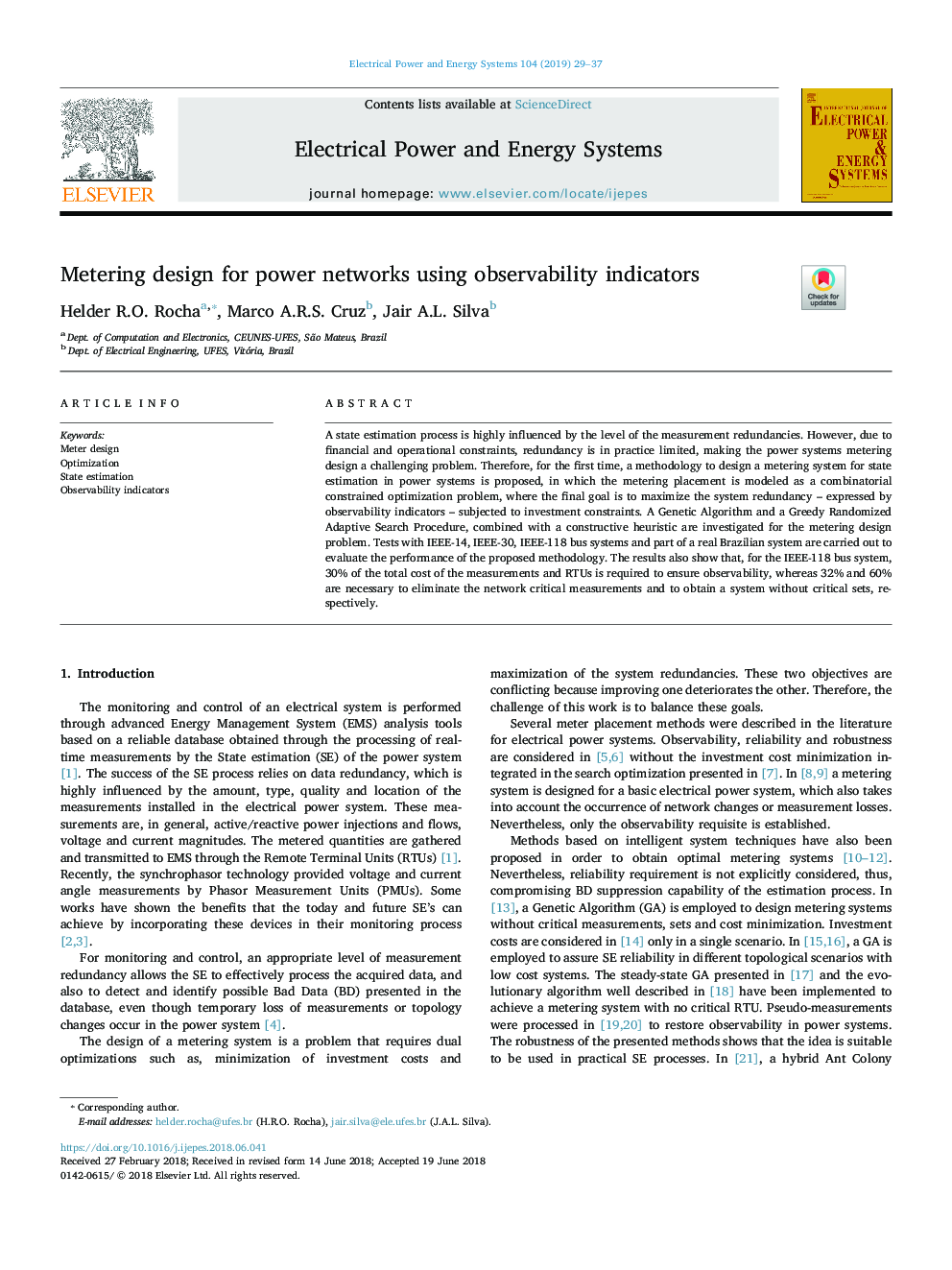| Article ID | Journal | Published Year | Pages | File Type |
|---|---|---|---|---|
| 6859034 | International Journal of Electrical Power & Energy Systems | 2019 | 9 Pages |
Abstract
A state estimation process is highly influenced by the level of the measurement redundancies. However, due to financial and operational constraints, redundancy is in practice limited, making the power systems metering design a challenging problem. Therefore, for the first time, a methodology to design a metering system for state estimation in power systems is proposed, in which the metering placement is modeled as a combinatorial constrained optimization problem, where the final goal is to maximize the system redundancy - expressed by observability indicators - subjected to investment constraints. A Genetic Algorithm and a Greedy Randomized Adaptive Search Procedure, combined with a constructive heuristic are investigated for the metering design problem. Tests with IEEE-14, IEEE-30, IEEE-118 bus systems and part of a real Brazilian system are carried out to evaluate the performance of the proposed methodology. The results also show that, for the IEEE-118 bus system, 30% of the total cost of the measurements and RTUs is required to ensure observability, whereas 32% and 60% are necessary to eliminate the network critical measurements and to obtain a system without critical sets, respectively.
Keywords
Related Topics
Physical Sciences and Engineering
Computer Science
Artificial Intelligence
Authors
Helder R.O. Rocha, Marco A.R.S. Cruz, Jair A.L. Silva,
